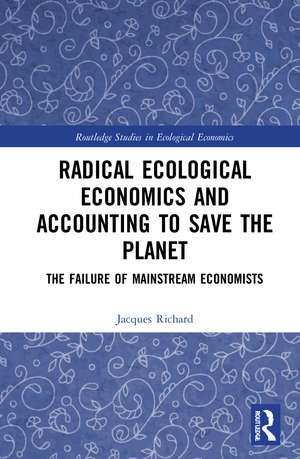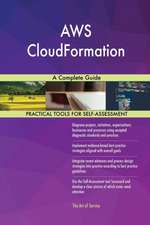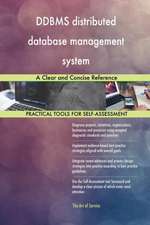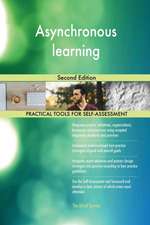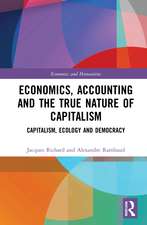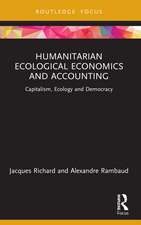Radical Ecological Economics and Accounting to Save the Planet: The Failure of Mainstream Economists: Routledge Studies in Ecological Economics
Autor Jacques Richarden Limba Engleză Paperback – 29 iul 2024
The work has four main themes: First, the book provides a presentation and criticism of the tools traditionally proposed by neoclassical economists. Adopting a historical perspective, this section shows how these tools have evolved over time and explores some of the theoretical criticisms which have been leveled at them. Second, the book shows how mainstream economists have moved away from more pragmatic and efficient solutions because of their ignorance of the realities of management, in particular, corporate accounting, and their ideologically driven desire to avoid attacking the capitalist model. Third, a toolkit of anti-capitalist ecological accounting is outlined, showcasing the distinct advantages of this approach for the environmental crises. And finally the book considers the concrete possibilities of a rapid application of these new tools to combat the immediate threats we are facing.
The book will interest all readers who want to understand how anti-capitalist ecological accounting can contribute to cooling and saving the planet, in particular readers in ecological economics and accounting.
| Toate formatele și edițiile | Preț | Express |
|---|---|---|
| Paperback (1) | 381.47 lei 6-8 săpt. | |
| Taylor & Francis – 29 iul 2024 | 381.47 lei 6-8 săpt. | |
| Hardback (1) | 996.02 lei 6-8 săpt. | |
| Taylor & Francis – 18 aug 2022 | 996.02 lei 6-8 săpt. |
Din seria Routledge Studies in Ecological Economics
-
 Preț: 311.41 lei
Preț: 311.41 lei -
 Preț: 151.86 lei
Preț: 151.86 lei -
 Preț: 310.31 lei
Preț: 310.31 lei - 26%
 Preț: 819.09 lei
Preț: 819.09 lei - 25%
 Preț: 851.99 lei
Preț: 851.99 lei -
 Preț: 412.70 lei
Preț: 412.70 lei -
 Preț: 487.75 lei
Preț: 487.75 lei - 18%
 Preț: 1167.58 lei
Preț: 1167.58 lei -
 Preț: 397.54 lei
Preț: 397.54 lei -
 Preț: 482.53 lei
Preț: 482.53 lei -
 Preț: 483.55 lei
Preț: 483.55 lei - 26%
 Preț: 987.21 lei
Preț: 987.21 lei -
 Preț: 417.20 lei
Preț: 417.20 lei -
 Preț: 418.35 lei
Preț: 418.35 lei - 14%
 Preț: 341.66 lei
Preț: 341.66 lei - 11%
 Preț: 336.99 lei
Preț: 336.99 lei - 15%
 Preț: 423.09 lei
Preț: 423.09 lei - 18%
 Preț: 1167.36 lei
Preț: 1167.36 lei -
 Preț: 482.35 lei
Preț: 482.35 lei - 13%
 Preț: 295.07 lei
Preț: 295.07 lei -
 Preț: 480.62 lei
Preț: 480.62 lei -
 Preț: 421.66 lei
Preț: 421.66 lei - 13%
 Preț: 296.68 lei
Preț: 296.68 lei - 18%
 Preț: 1171.54 lei
Preț: 1171.54 lei - 19%
 Preț: 246.67 lei
Preț: 246.67 lei - 18%
 Preț: 1057.75 lei
Preț: 1057.75 lei - 28%
 Preț: 823.44 lei
Preț: 823.44 lei -
 Preț: 492.16 lei
Preț: 492.16 lei - 18%
 Preț: 1064.19 lei
Preț: 1064.19 lei -
 Preț: 413.13 lei
Preț: 413.13 lei - 18%
 Preț: 1168.37 lei
Preț: 1168.37 lei - 15%
 Preț: 421.29 lei
Preț: 421.29 lei - 18%
 Preț: 1058.79 lei
Preț: 1058.79 lei - 18%
 Preț: 1057.75 lei
Preț: 1057.75 lei - 18%
 Preț: 1162.84 lei
Preț: 1162.84 lei - 18%
 Preț: 1171.89 lei
Preț: 1171.89 lei - 26%
 Preț: 822.54 lei
Preț: 822.54 lei
Preț: 381.47 lei
Nou
Puncte Express: 572
Preț estimativ în valută:
72.100€ • 78.06$ • 60.86£
72.100€ • 78.06$ • 60.86£
Carte tipărită la comandă
Livrare economică 17 aprilie-01 mai
Preluare comenzi: 021 569.72.76
Specificații
ISBN-13: 9781032300283
ISBN-10: 1032300280
Pagini: 142
Ilustrații: 8
Dimensiuni: 156 x 234 mm
Greutate: 0.21 kg
Ediția:1
Editura: Taylor & Francis
Colecția Routledge
Seria Routledge Studies in Ecological Economics
Locul publicării:Oxford, United Kingdom
ISBN-10: 1032300280
Pagini: 142
Ilustrații: 8
Dimensiuni: 156 x 234 mm
Greutate: 0.21 kg
Ediția:1
Editura: Taylor & Francis
Colecția Routledge
Seria Routledge Studies in Ecological Economics
Locul publicării:Oxford, United Kingdom
Public țintă
Academic and PostgraduateCuprins
General introduction PART I Why are the tools of dominant economists inadequate for ecology 1 Historical presentation of the tools of the dominant economists 2 Theoretical critiques of the tools of dominant economists by other economists Conclusion of the first part PART II Why accountant’s tools are needed to solve ecological problems 3 The birth of modern accounting and its ignorance by most economists 4 The interest of the knowledge of capitalist accounting for an anticapitalist economic revolution Conclusion of the second part PART III How to use accounting concepts to rebuild an ecological and humanitarian economy 5 The basic principles of new economics and management: the CARE/TDL model 6 Appliance of the CARE/TDL model to microeconomics: the case of green house gases 7 Application of the CARE / TDL method to national accounts Conclusion of the third part PART IV Is there any hope to see the use of The CARE / TDL Model today? 8 The problems of the diversity of environmental (ecological) accounting systems and green finance 9 The current proposals of the experts of the World Bank and the International Monetary Fund Conclusion of the fourth part General conclusion
Notă biografică
Jacques Richard is Emeritus Professor at the University of Paris Dauphine, France. He is also a former chartered accountant and counsellor of trade unions, and former member of the Authority of Accounting Standards (Paris). In 2013 he received the "Best Manuscript Award" from the Academy of Accounting Historians.
Descriere
The solutions and tools generally offered to policy-makers on environmental issues most often emanate from neoclassical economists. This book shows that the tools of these economists are ineffective for the job and must be replaced by methods from the sphere of ecological accounting.
